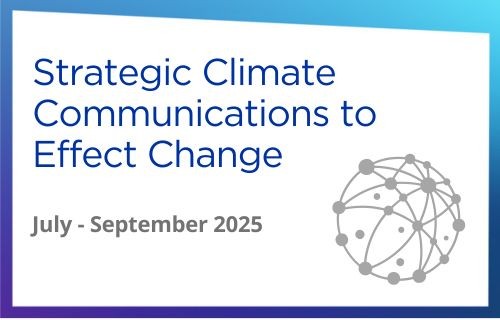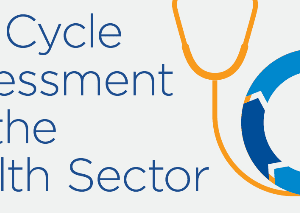
Professional Learning Workshop: Climate Communications
Schedule:
(VIRTUAL) July – September 2025, Thursdays. Session 1 will be 2 hours in length. All other sessions will run for 2 hours and 10 minutes.
Session 1: Thursday, July 31, 2025, 6-8pm ET
Session 2: Thursday, August 7, 2025, 5.50-8pm ET
Session 3: Thursday, August 14, 2025, 5.50-8pm ET
Session 4: Thursday, August 21, 2025, 5.50-8pm ET
Session 5: Thursday, August 28, 2025, 5.50-8pm ET
Session 6: Thursday, September 4, 2025, 5.50-8pm ET
Session 7: Thursday, September 11, 2025, 5.50-8pm ET
Workshop Fees:
$2,000 for the 15h workshop
Description:
There is no question that better climate communications have become a priority across sectors as the impacts of climate change continue to shift daily lives for individuals, communities, and organizations. Whether it be exploring more effective ways to communicate science, navigating difficult conversations stemming from different viewpoints, or connecting better with individuals and groups in a changing world, at the center of climate communication is the convergence of science and the dynamics of human behavior. This workshop invites participants to explore ways to apply research across psychology, adult learning theory, cognitive science, and social neuroscience to improve climate change communications to drive change in their specific context.
This workshop is designed for professionals and interested individuals across sectors who are tasked with communicating climate change-related information in a range of settings, from workplace, activism, classrooms, to everyday encounters. Every context and audience are unique, for that reason, this workshop will focus on working with participants to tailor climate communications and initiatives specific to their work, research, or teaching context. The workshop will be a combination of presentations, guest lectures from the field, and applied practice. Participants will also create a practicum project that will allow them to generate localized solutions and communication strategies for the community/setting of their choice with feedback from experts from Columbia Climate School.



